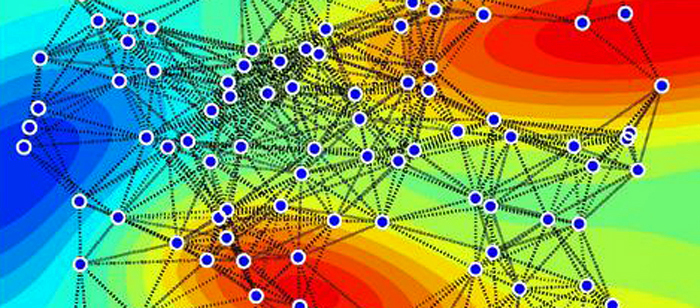MS Thesis Defense
Distributed Model Consensus for Models of Locally
Biased Measurements in Wireless Sensor Networks
Jacob Thompson
4:00pm Wednesday, 25 April 2012, ITE 325B, UMBC
Wireless sensor networks (WSNs) consist of interconnected microsensors, each of which collects measurements from its local environment, which are often used in monitoring and control applications. These applications make inferences about the global and local states of the deployment environment. However, due to the limited communication and energy resources at the sensors, gathering all the raw data at a central fusion/control point is impractical.
Hence, it is essential to have distributed learning and inference in WSNs, such as learning a consensus model from the locally learned models. Consensus is challenging due to the limited resources of the sensors and the inherent bias of the individual sensor models learned from their local sensing environments. Two leading approaches for this problem are the approach by Zheng et al which uses loopy belief propagation on a certain graphical model based on the WSN topology and the local models, and the approach by Xiao et al which relies on gossip averaging of the parameters of the local models.
We focus on multivariate linear regression models, such as Bayesian, Ridge, and Lasso regression models. We analyze and extend the loopy Gaussian belief propagation (GaBP) approach to model consensus, and compare its performance to the gossip averaging approach. We experimentally find that GaBP tends to converge much faster than gossip averaging, but to a less accurate estimated consensus model (especially in the presence of multiple cycles in its corresponding graphical model). We also find that gossip averaging along paths in the WSN, tends to provide much faster convergence to more accurate estimated consensus models as compared to GaBP.
Committee: Professors Kostas Kalpakis (chair), Tim Oates and Yun Peng
